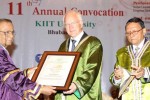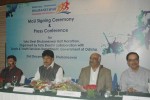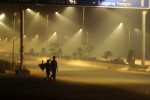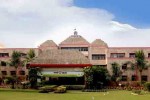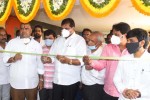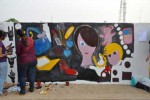Odisha Channel Bureau
Bhubaneswar: UNICEF Odisha in collaboration with Aaina, an Odisha-based voluntary organisation hosted the inauguration ceremony of Children’s Festival Week of Season 6 of KALLOLA 2020 – a celebration of children’s creativity, here on Friday on the theme of Children & COVID-19.
The festival was launched with support of Women and Child Development, Government of Odisha and Mo School Sangathan.

The festival will show case short videos and jingles produced with scripts written by around 500 children in child care institutions and government-run schools in the state. The scripts were produced through a series of online workshops organized for these children by film makers in Odisha.
Sharing his experience Subham Sahu, 15 years, from Manikeswari High School from Kalahandi district said, “I had a lot of fun learning about the different aspects of writing a script. We also watched movies to understand how an idea is converted into a script. I worked with four other fellow students and we are so happy to see a film made with our script.”
Jhumuki Kirsani, 15 years, from SOVA Astha Children’s Home from Koraput district, said it was a unique experience for the participants from her institution. “We had thought scripts could only be written by grow ups. But once we understood how a story is broken into parts, visualized and converted into a script, we are now confident of writing more scripts and radio jingles.”
Speaking on the occasion Anu Garg, Principal Secretary, WCD, Government of Odisha, said, “I am so proud of the work done by the children, all the videos, jingles, and short films are excellent. Even though it was their first attempt, yet the thought process, expressions, visualization are just outstanding. It is clear that this activity has created an interest in children to think differently and learn new things.
“It has incited creativity in their minds. They, now, know that films are not all about entertainment. Films can teach, educate, inspire people to do more for the country. I am very happy that children have utilized this pandemic time innovatively and in a very disciplined way,” she said.
This year Mo School Abhiyan Parichalana Sangathan, which is an umbrella body for all government run schools in Odisha also participated in Kallola activities. Students in government-run schools took part in the workshops and produced scripts and content for radio jingles.
Mo School, Chief Operating Officer, Amarjit Jena said, “We are very pleased with the scripts produced by our students. Along with studies, such creative activities are very essential for children. We will use our channels and networks to share these videos and jingles.”
Well-known film director and producer Nila Madhab Panda said, “Just the way we have our basic needs such as food, water and shelter, creative activities are essential for a child to grow. As adults we must give space and platforms to children explore their own creativity. This builds character and a better future for them. I do hope such workshops and activities can continue for children in Odisha in the coming years.”
Chief of Field Office, UNICEF Odisha Monika O. Nielsen said, “Today, as we celebrate the World Children’s Day, we are acutely aware of the impact the pandemic has made on the lives of children. We need to find avenues of hearing their views directly from them. Young people rarely have a voice in the decisions that affect their lives, yet they have immense energy, talent and creativity that, if harnessed, can contribute to their societies’ advancement. The scripts written by the children showcase this creativity and we are very proud of them.”
Sharing her thoughts on the occasion, Sneha Mishra said “Working with children is always fun! This year we were apprehensive in the beginning as to how do we interact with children online but we managed to reach out to nearly 500 children with the support of Odisha State Child Protection Society (OSCPS) and Mo School. It was a very good experience to hear from children what they had to say about the pandemic and related issues. Their imagination and creativity reflected in the scripts they produced.”



